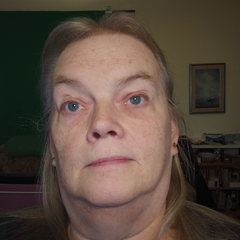How to enlighten friend's narrow understanding of trans women?
-
Who's Online 5 Members, 0 Anonymous, 168 Guests (See full list)
- Betty K
- MaybeRob
- KymmieL
- Ashley0616
- Lorelei
-
Recently Browsing 0 members
- No registered users viewing this page.

By KymmieL · Posted

By Birdie · Posted

By Charlize · Posted

By Charlize · Posted

By Ashley0616 · Posted

By KathyLauren · Posted

By Pip · Posted
By atlantis63 · Posted
By Heather Shay · Posted

Recommended Posts
Create an account or sign in to comment
You need to be a member in order to leave a comment
Create an account
Sign up for a new account in our community. It's easy!
Register a new accountSign in
Already have an account? Sign in here.
Sign In Now